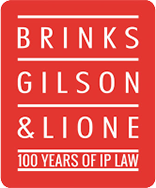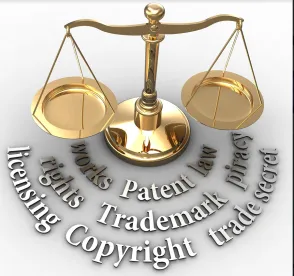The Patent Trial and Appeal Board (“Board”) has convened a Precedential Opinion Panel (“POP”) for review of an “exceptional issue,” accepting a recent petitioner's request for rehearing of a decision denying a motion for joinder and inter partes review (IPR) petition. In an order filed December 3, 2018 (IPR2018-00914), the Board noted historically conflicting interpretations of 35 U.S.C §315(c), which relates to joinder with other IPR proceedings, and gives the Director discretion to join as a party to that IPR “any person who properly files a petition under §311 [such] that the Director, after receiving a preliminary response under section §313 or the expiration of the time for filing such a response” may determine if institution of the IPR is warranted under §314. The Board thus ordered that the POP address the interpretation of the statute. Specifically, the POP will review whether a petitioner may be joined to a proceeding in which it is already a party, whether the statute permits joinder of new issues into an existing procedure, and whether the statutory time bar of 35 U.S.C. § 315(b) has any impact on these two questions.
The members of the POP for this review are Andrei Iancu, Under Secretary of Commerce for Intellectual Property and Director of the United States Patent and Trademark Office, Drew Hirshfeld, Commission for Patents, and Scott R. Boalick, Acting Chief Administrative Patent Judge.
The case arises from an IPR filed in September of 2017 (IPR2017-02103) by Proppant Express Investments, LLC and Proppant Express Solutions, LLC (“Petitioner”) against Oren Technologies (“Patent Owner”) over US patent number 9,511,929. The patent relates to containers designed for transporting particulate material involved in hydraulic fracturing. The Patent Owner responded in December of 2017, and noted an error in claim grouping that resulted in the institution of only a subset of the challenged claims. In April 2018, the Petitioner filed a second IPR (“Late Petition”) seeking review of the single claim that was denied in the first IPR, along with a motion to join the Late Petition with the earlier instituted IPR on the basis that no new evidence was required in view of the original petition. The Petitioner argued that the Board had previously recognized same-party joinder as appropriate under 35 U.S.C §315(c) citing Target Corp. v. Destination Maternity Corp., IPR2014-00508, Paper 28 at 6–17 (PTAB Feb. 12, 2015).
Patent Owner responded to the Late Petition and motion for joinder by arguing that the Petitioner was merely attempting to file the second petition as an alleged “issue joinder” under 35 U.S.C §315(c) rather than consolidating proceedings under 35 U.S.C §315(d) to avoid the fact that Petitioner did not file the second petition within the one-year bar period. The Board denied institution of the Late Petition, stating that Petitioner’s “failure to diligently seek correction of its petition is not a basis for revisiting our Institution Decision.”
Petitioner requested a rehearing of the Board’s decision, stating that the Board misinterpreted 35 U.S.C §315(c), setting the stage for the POP to resolve conflicting interpretations of the statute in, Target Corp. v. Destination Maternity Corp., IPR2014-00508, Paper 28 at 6–17 (PTAB Feb. 12, 2015) with SkyHawke Techs., LLC v. L&H Concepts, LLC, IPR2014-01485 (Paper 13)(Mar. 20, 2015).
In Target, petitioners also filed a second petition after the one-year statutory bar period to introduce a claim that was excluded from an earlier proceeding. The second petition was denied. In a 4-3 reversing decision, the Board’s majority noted that because there is some ambiguity, a review of the legislative history of 35 U.S.C §315(c) was warranted. Based on this review, the majority concluded that the statute did not exclude the same petitioner from joining an IPR. The dissent disagreed arguing that the statute was unambiguous. In SkyHawke, petitioners also filed a second petition after expiration of the one-year bar, and a motion for joinder with an earlier proceeding. However, in this case, the Board denied institution and joinder, finding that in light of the statute’s legislative history, joinder can only occur of a person not already a party to the proceeding. The court further noted the one-year bar applied.
The conflicting rulings have set the stage for these issues to be resolved by the POP. The Board further ordered additional briefing from the parties and any amicus curiae briefs on the identified issues by Dec. 28, 2018, with the parties filing responses by January 14, 2019. The POP’s decision could greatly influence a party’s diligence for filing IPR petitions, to ensure that a petition comprehensively addresses all issues and bases for institution.





 />i
/>i

